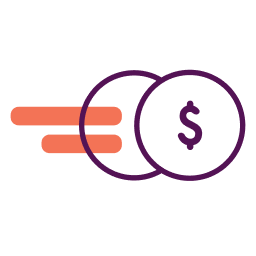Business owners looking to improve their cash flow often consider business loans as a way to get the capital they need to cover expenses or expand the business.
But every lender has different business loan requirements for different types of business loans, and the application process can be simple or complex, depending on the lender and type of loan. Here’s what you need to get approved for small business loans for your company.
First, Meet the Players
Not only do you have a wide range of financing options to choose from. You also have dozens of different lenders to consider.
The U.S. Small Business Administration (SBA) isn’t a lender but does guarantee loans with low interest rates. You can apply for SBA loans through traditional banks and online lenders. Banks also offer low-interest loans and business lines of credit.
If you don’t have good credit, you may also consider online lenders who offer solutions like short-term loans and merchant cash advances, as the requirements to qualify may be less stringent than those offered by traditional banks.
Now let’s explore what you need to get a business loan.
Let’s Look at Credit Scores
For most traditional lenders, your personal and/or business credit scores play a large role in determining whether to approve you for financing or not. The higher your business and personal credit scores, the better the interest rate and repayment terms.
If you aren’t on top of your credit history and scores, you can get your credit reports from the credit bureaus. Look for your scores, particularly your FICO score, as that’s what many lenders and financial institutions look for.
If you’re applying for an SBA loan, you will likely need a FICO SBSS score of at least 160, if not more.
Do You Need Collateral?
Some bank loans, particularly those for larger amounts (think $300,000), may require collateral. That’s an asset, like real estate or equipment, that the bank can use to cover what you owe in the event you aren’t able to pay off your loan.
Read the fine print before applying for a loan to see if it requires collateral, and if it does, consider what assets you have of the appropriate value.
What About Time in Business?
Startups and new businesses may have trouble getting a loan with a traditional bank because most want you to have been in business for at least two years. Why? They want to see that you have a track record of being financially stable and paying your debts. This assures a lender of the likelihood that you’ll be able to pay back a loan it approves.
If you haven’t been in business that long, there are startup loans that look at other factors besides your time in business.
Let’s Look at Revenue
Some lenders want evidence of your annual revenue because it assures them that you have enough money in the bank to pay your monthly payments. A lender might ask to see your business bank statements, tax returns, or financial statements like balance sheet or profit and loss statement, so if you’re considering applying for a loan, it might be a good idea to get these ready to go.
Other Things You Might Need
Every lender has the ability to require anything they think will help them in determining how much of a risk it is to lend to you.
Some may require borrowers to provide a business plan or outline how they will use the funds. Others may require proof of certain business licenses you are required to have.
You will also need to provide your bank account details so that when you are approved, the lender can electronically deposit your funds.
The Application Process
Depending on how in-depth the application is, small business owners may be able to spend just a few minutes filling out the application before getting word on whether they are approved or not…or it could take weeks to apply and get approved for business financing.
Traditional lenders like banks tend to have more in-depth business loan applications and may ask you to provide supporting documents like those financial statements or tax returns. You may go back and forth with an underwriter before your application is even accepted.
On the other hand, online lenders may just ask for a few details about your business and the industry it’s in, how long it has been in operation, and your Employer Identification Number. You’ll also be asked details about your personal income and your Social Security number, since you as the owner will be providing a personal guarantee if your business can’t pay off the loan.
Some lenders give you an instant response on whether you are approved or not. Upon loan approval, review the loan terms and sign the loan agreement. Some lenders can deposit funds into your business checking account in as little as one business day.
Options if You Have Bad Credit
If your credit is poor, you may be more limited in your financing options. Look to online lenders that offer merchant cash advances or short-term loans to find working capital, but be prepared to pay more to get it.
If you can’t qualify for an unsecured loan or business credit cards, you may be able to get a secured loan or credit card, which means you’ll make a down payment or deposit as security for the financing.
If you can afford to wait a while to take out financing, keep an eye on your credit report and work to improve your credit by paying down existing debt and making your payments on time. Before you know it, you may meet more lenders’ eligibility requirements for lower-priced financing.
Things to Consider
Before applying for a loan, consider the type of financing your business needs. Term loans are great if you need a lump sum all at once, such as for purchasing an expensive piece of equipment. Other times you might prefer to have access to financing when you need it. In that case, a business line of credit might be a better fit.
If you just need to be able to make purchases for your business when you need them, a business credit card might be worth considering. If you want equipment for your business, you can also explore equipment leases.
Before applying, gather all the required documents you’ll need. Review what the lender needs and get it together before sitting down with a lender.
Be prepared to provide a personal guarantee with some loans, especially larger ones.
Realize that even if you qualify to borrow a higher loan amount, you should only borrow what you can afford to pay back.
The Final Word on Business Loans
A business loan or line of credit allows you to take your business to the next level, whether that’s to hire staff to better serve your customers or buy equipment that makes you more productive.
Whatever your business needs, find small business financing that’s the right fit.
This article was originally written on December 20, 2021 and updated on January 24, 2022.


Have at it! We'd love to hear from you and encourage a lively discussion among our users. Please help us keep our site clean and protect yourself. Refrain from posting overtly promotional content, and avoid disclosing personal information such as bank account or phone numbers.
Reviews Disclosure: The responses below are not provided or commissioned by the credit card, financing and service companies that appear on this site. Responses have not been reviewed, approved or otherwise endorsed by the credit card, financing and service companies and it is not their responsibility to ensure all posts and/or questions are answered.